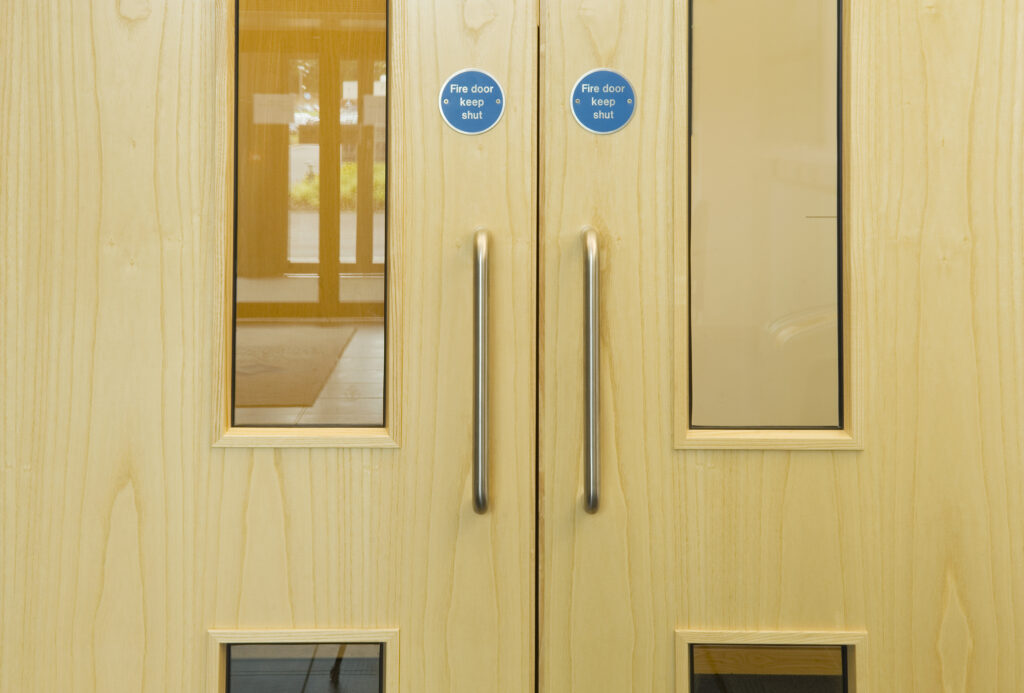Section 156 of the Building Safety Act 2022 (BSA) makes a number of amendments to the Regulatory Reform (Fire Safety) Order 2005 (FSO) to improve fire safety in all buildings regulated by the FSO. These improvements form Phase 3 of the Home Office’s fire safety reform programme, building on Phase 1 (the Fire Safety Act 2021) and Phase 2 (the Fire Safety (England) Regulations 2022).
It is imperative for businesses and Responsible Persons (RP’s) to remain well-informed about the forthcoming alterations to fire safety regulations as stipulated in section 156 of the Building Safety Act 2022, which came into effect on October 1, 2023. Cleveland Fire have put together a useful article with everything you need to know:
These revisions will have an impact on many premises, including small stores, takeaway restaurants, holiday rentals, and residential buildings. The key changes that businesses should be mindful of include:
- Comprehensive Fire Risk Assessment: Irrespective of their size, employee count, or business type, all enterprises will be obligated to meticulously document their fire risk assessments and fire safety protocols.
- Enhanced Cooperation and Coordination: In multi-tenant structures or properties where the occupant and owner differ, there will be heightened requirements for collaboration and synchronisation among Responsible Persons.
- Residential Fire Safety Information: In residential complexes containing two or more domestic units, residents must be furnished with pertinent details regarding fire risks and the safety measures in place to safeguard their well-being.
Phase 3 further strengthens fire safety in all FSO regulated premises by:
Since the tragic Grenfell fire in June 2017, where 72 people sadly lost their lives and 70 more were injured, the Government has brought in new regulations and updated amendments to fire legislation to try to minimise the risks of a disaster like this happening again. Changes include laws around the materials used on buildings and the responsibilities of landlords – we’ve outlined them below:
What changes have been made?
Section 156 of the Building Safety Act 2022 (BSA) makes a number of amendments to the Regulatory Reform (Fire Safety) Order 2005 (FSO) to improve fire safety in all buildings regulated by it. These improvements form Phase 3 of the Home Office’s fire safety reform programme, building on Phase 1 (the Fire Safety Act 2021) and Phase 2 (the Fire Safety (England) Regulations 2022).
Phase 3 further strengthens fire safety in all FSO regulated premises by:
- improving cooperation and coordination between Responsible Persons (RPs)
- increasing requirements in relation to the recording and sharing of fire safety information thus creating a continual record throughout a building’s lifespan
- making it easier for enforcement authorities to take action against non-compliance
- ensuring residents have access to comprehensive information about fire safety in their building
The Responsible Person
You are the Responsible Person for fire safety if you are deemed to have control of the premises. For example, if you are:
- An employer
- The owner of the building
- The landlord of the building
- A facilities manager, building manager, managing agent, risk assessor or anyone else with control of the premises.
- require that all RPs must record their completed fire risk assessment, and in full (where previously only specific information was required to be recorded)
- require that all RPs must record the identity of the individual (their name), and/or if applicable, their organisation (name) engaged by them to undertake/review any or all of the fire risk assessment
- require that all RPs must record their fire safety arrangements (demonstrate how fire safety is managed in your premises)
- require that all RPs must record (and as necessary update) their contact information, including a UK based address, and share this with other RPs and residents of multi-occupied residential premises where applicable
- require that all RPs must take reasonably practicable steps to ascertain the existence of other Responsible Persons who share or have duties in respect of the same premises, and of Accountable Persons (which are a new legal entity made under the Building Safety Act in the case of higher-risk residential buildings) in relation to the premises – they must then identify themselves to said persons
- require that departing RPs must share all ‘relevant fire safety information’ with incoming Responsible Persons
- require RPs of a building containing two or more sets of domestic premises to provide residents with relevant fire safety information in a format that is easily understood by the residents
- increase the level of fines for some offences
- strengthen the status of statutory guidance issued under Article 50 of the Fire Safety Order

How can a Facilities Management company help?
Understanding legislation can be far from straightforward. Having an external company who specialises in fire safety means their sole focus is on that area of expertise. Our team are adept at understanding compliance needs and implementing these changes within businesses. We can carry out a free consultation call to understand what it is your business needs and then conduct a site visit to really get to know how we can assist.
The updates to the fire safety regulations put an even heavier emphasis on building owners and landlords to ensure precautions are in place to minimise the risk of fire. Being compliant can literally save lives – don’t delay, get in touch with us today to book in your consultation.






